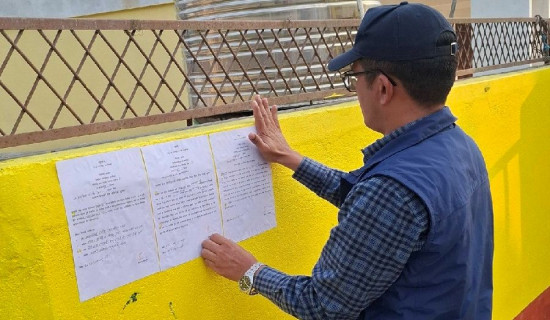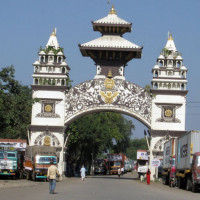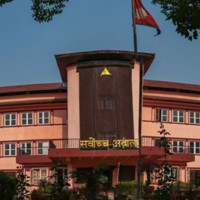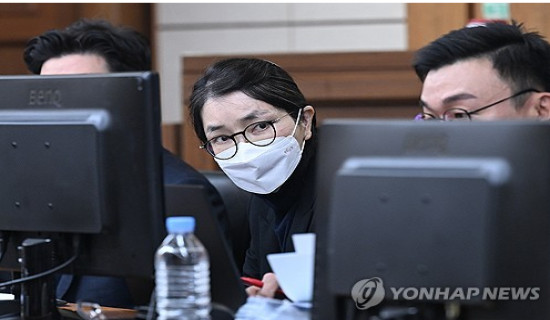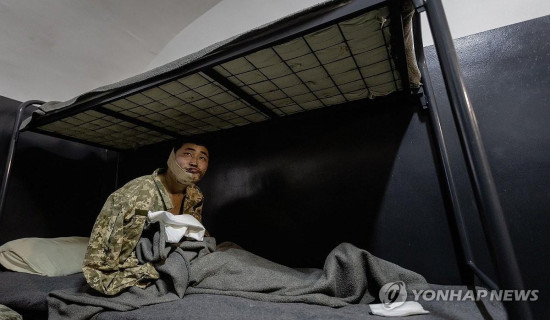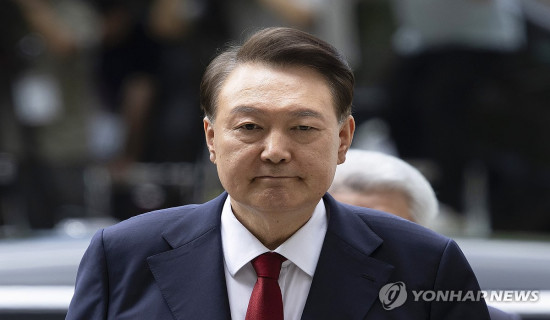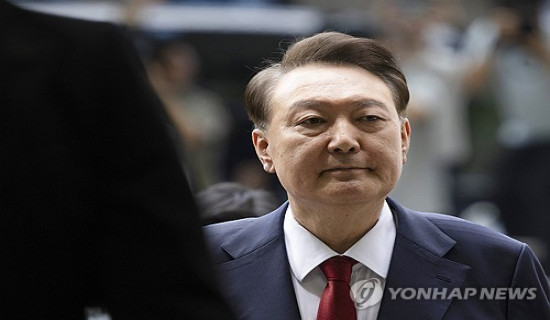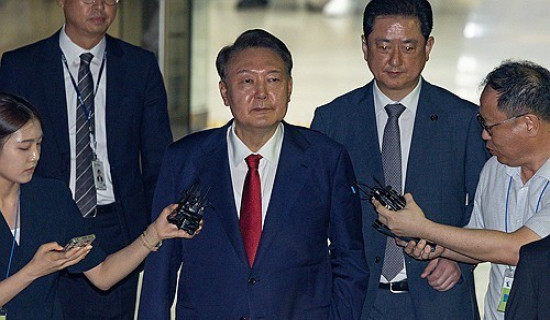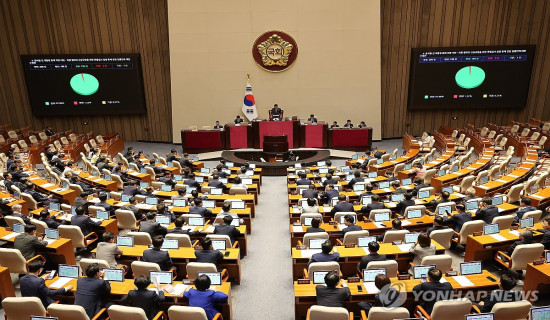- Tuesday, 3 March 2026
S. Koreans vote for new president in martial law aftermath
By Kim Eun-jung, Yonhap, June 3: South Koreans voted Tuesday to pick a new president, with a liberal candidate bent on punishing the forces responsible for former President Yoon Suk Yeol's martial law attempt against a conservative keen on stopping the recklessness of his rival.
The election takes place exactly six months after Yoon declared martial law in a surprise announcement that evoked dark memories of past military regimes and plunged the nation into the worst economic and political crisis in decades.
Of the total 44.39 million eligible voters nationwide, 27.56 million had cast their ballots as of 1 p.m., seven hours after voting began at 14,295 polling stations across the country, according to the National Election Commission (NEC).
The provisional tally includes the votes cast in early voting, as well as overseas, shipboard and absentee ballots.
Voter interest was keen in the snap election, as 34.74 percent of the registered voters had already cast their ballots in the early voting held on Thursday and Friday, the second-highest figure since early voting was introduced in 2014.
Lee Jae-myung, the candidate of the liberal Democratic Party, campaigned on a pledge to overcome the "insurrection forces" led by Yoon in the wake of his impeachment and removal from office less than three years into his five-year term.
Kim Moon-soo, the candidate of the conservative People Power Party, seized on Lee's many ongoing trials and aggressive leadership style to promise a future free of "dictatorship."
People line up to cast their ballots in the presidential election at a polling station in the southeastern city of Daegu on June 3, 2025. (Yonhap)
While the two main contenders cast their ballots during the early voting period, other major political figures voted on Election Day.
Former President Yoon and his wife, Kim Keon Hee, cast their ballots at a polling station in southern Seoul.
National Assembly Speaker Woo Won-shik voted at a polling station in northern Seoul, saying he hopes the nation overcomes the political "chaos" and moves toward a "democratic society" through the election.
In the closely watched vote, the Seoul Metropolitan Police said it had received 54 reports of alleged election law violations as of noon.
One incident involved a red balloon bearing the phrase "President Kim Moon-soo," which was placed near a polling station in southern Seoul where Yoon had cast his ballot earlier in the day.
Election laws prohibit any acts of support for or opposition to a particular party or candidate within 100 meters of a polling station. Violators are subject to a maximum fine of 30 million won (US$21,700) or up to five years in prison.
Former President Yoon Suk Yeol (L) and his wife, Kim Keon Hee, head to a polling station for the presidential election in southern Seoul on June 3, 2025. (Yonhap)
Vote counting will begin soon after polls close at 8 p.m. A winner is expected to emerge around midnight, though the vote count will likely be completed around 6 a.m. Wednesday, according to the NEC.
Once the vote count is completed, the NEC will convene a plenary meeting sometime between 7 a.m. and 9 a.m. to formally approve the election results.
As the election is being held early to replace Yoon, the new president will take office immediately without a transition period.
The inauguration ceremony will likely take place hours later at the National Assembly, though details will be confirmed after the president-elect is determined.
A total of five candidates are vying for the nation's top political office after two dropped out during the campaign.
Aside from Lee and Kim, they are Lee Jun-seok of the New Reform Party, Kwon Young-guk of the Democratic Labor Party and Song Jin-ho, an independent.
Surveys conducted before the blackout on all nationwide polls last week showed the DP's Lee maintaining a comfortable lead of around 10 percentage points over Kim, although the gap had narrowed from earlier.
Support for Lee was in the 40 percent range, followed by 30-something percent for Kim and around 10 percent for Lee Jun-seok.
Voters cast their ballots in the presidential election at a polling station in the southeastern city of Ulsan on June 3, 2025. (Yonhap)
Both Lee and Kim have made economic growth their No. 1 campaign promise, with an emphasis on nurturing the artificial intelligence industry.
On security issues, Lee has vowed to pursue "pragmatic" diplomacy in response to the changing global order, while Kim has stressed building deterrence against North Korea's nuclear threats.
Lee and Kim agree on the need to revise the Constitution to replace the current single five-year presidential term with a four-year, two-term system.
Kim has pledged to cut short his own term to three years to align the president's term with those of National Assembly members beginning in 2028.
Lee, however, has called for holding a referendum on amendments to the Constitution and applying the changes starting in 2030.


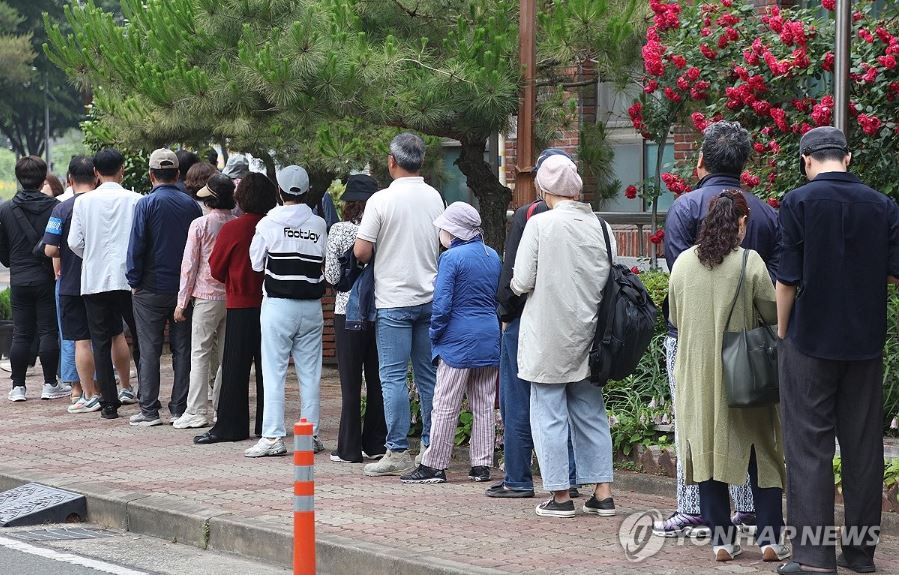
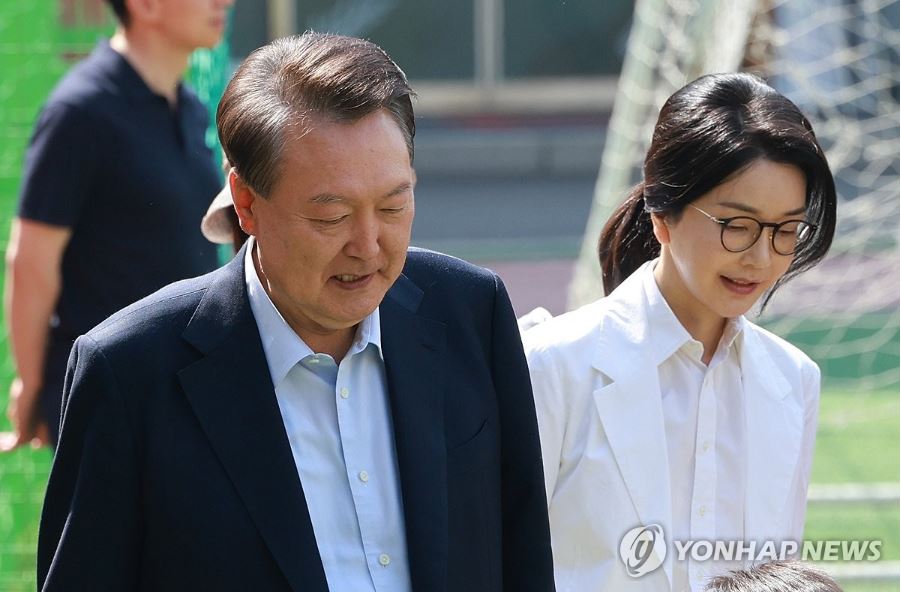
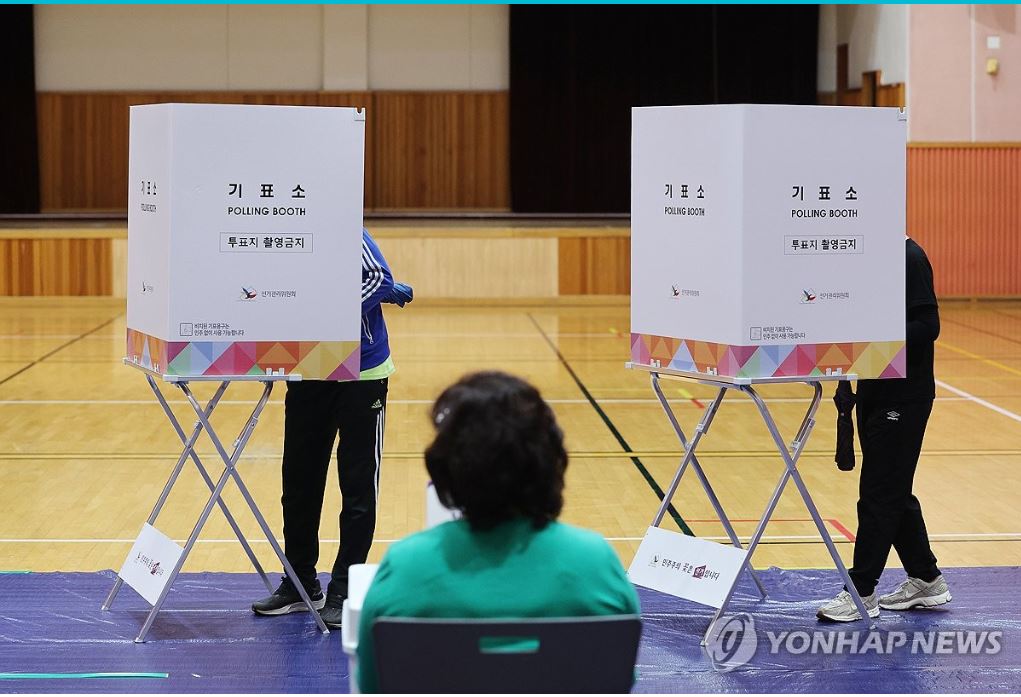
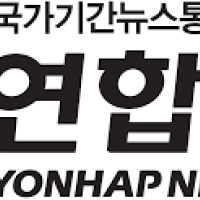
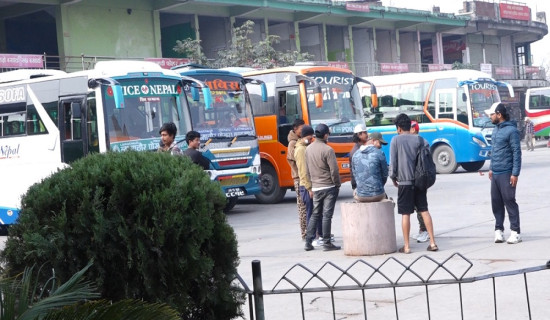
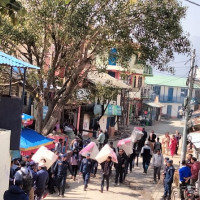
-square-thumb.jpg)
